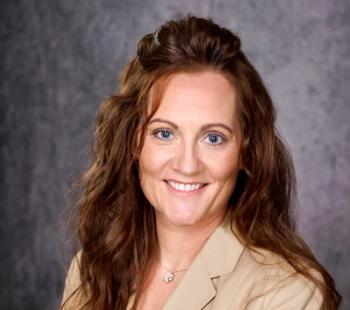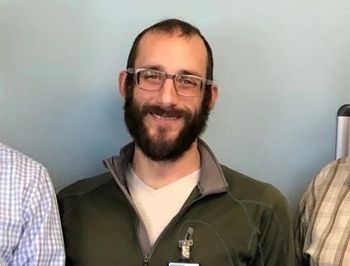
AtlantiCare CEO discusses expansion, teaming with Cleveland Clinic and Oracle, and more
Michael Charlton talks with Chief Healthcare Executive about the plans to transform the New Jersey-based health system, and why there’s no choice but to be bold.
Michael Charlton doesn’t want to waste any more time.
The president and CEO of AtlantiCare, Charlton has outlined an ambitious vision to transform the health system, based in Atlantic City, New Jersey.
At an event this month to unveil the “Vision 2030” initiative,
In addition, Charlton says the plans call for transforming the main campus, including a new cardiac tower, emergency department, and post-acute rehabilitation center in partnership with Select Medical. He expects the expansion of the campus will create thousands of new jobs.
“We're not here anymore just to deliver exceptional care,” Charlton says. “We're here to transform healthcare.”
In an interview with Chief Healthcare Executive®, Charlton talked in more detail about the Vision 2030 initiative, the expansion of the system, the impact on patients and the organization, and the goal of extending the lives of residents in Atlantic City. (See part of our conversation in this video. The story continues below.)
‘A much more rapid pace’
AtlantiCare operates two hospitals with a total of about 600 beds, along with more than 100 sites of care across southern New Jersey.
“We knew that we needed a more robust strategic plan, given the changes that were going on in healthcare,” Charlton says.
In talking with stakeholders inside and outside the organization, he says, “We really started with the main question: Why does AtlantiCare exist? And we worked from that. All the answers started coming to fruition around taking care of our community, being the anchor institution, driving clinical transformation in healthcare.”
AtlantiCare began looking to work with others, realizing the system couldn’t do everything on its own.
“We really just started looking at partnerships that could drive that transformation, at a much more rapid pace,” Charlton says. “Because we knew organically, you were not going to make the type of transformation that the organization needed to really take care of our community.”
AtlantiCare already operates a strong cancer program, but the partnership with the Cleveland Clinic will take services for patients to another level.
“We have a great cancer program and have exceptional outcomes,” Charlton says. “What we wanted was a partner that had a much broader scope, right, and who offers that more than the Cleveland Clinic?”
After brokering the agreement with the Cleveland Clinic, he says, “I'm still walking on air. Because what it is going to mean for this region and this community, there's no other level of cancer care that will surpass this, whether it's the research, whether it's their learning, whether it's their global presence … bringing all that to South Jersey, across the region.”
The partnership with Cleveland Clinic will also help address another challenge for AtlantiCare: Keeping patients from going to Philadelphia for care.
Philadelphia is about 60 miles from Atlantic City, and many people head to Philly for treatment of cancer and other serious conditions. Charlton thinks this partnership could deter people from going elsewhere.
While praising the work of Philadelphia’s large academic health systems, Charlton says there are advantages for patients and caregivers by offering more top-flight cancer closer to home.
“I truly and always will believe great care is local,” Charlton says. “It's delivered at home, particularly around cancer care and neuroscience. Those programs need to be delivered at home. Because when there's ongoing care, it's not just the patient that we have to take care of. We have to take care of the caregiver. And when you're traveling 50, 60 miles because you feel that you need a higher level of care, we're just putting added stress on both the patient and the caregiver.”
The medical school
Like other systems, AtlantiCare has faced difficulties in recruiting and retaining workers, and that’s partly driving the push to build a new medical school in Atlantic City.
Charlton says this is a case where proximity to Philadelphia has its advantages, since the city is home to Drexel University and its medical school, which has one of the largest enrollments of any medical school in the nation.
AtlantiCare and Drexel are teaming up to establish the new school. In May 2025, Charlton hopes to have third- and fourth-year medical students at AtlantiCare.
The system is looking at potential properties for the construction of a new medical school.
“Our aspiration is to have that campus up and running within 24 to 30 months, approximately,” he says. “We're not pushing out to 2030. We want to get that done quickly.”
Stockton University in southern New Jersey is also partnering in the effort to help establish the medical school. Stockton also will play an important role in training nurses and social workers for the expanded medical campus.
Charlton says he’s grateful to work with two academic institutions that also have a strong focus on improving the community.
“It wasn't just about academic education, but it was transforming healthcare along with building community,” he says.
The Oracle partnership
AtlantiCare is partnering with Oracle Health to upgrade the health system’s digital technology. AtlantiCare will become one of the first to use
Oracle Health will help build a command center, “which is key to the transformation,” Charlton says.
AtlantiCare is aiming to use real-time data to improve patient care. The command center will also help facilitate remote patient monitoring.
“We've committed to all these changes,” he says. “But we know that technology has to be the foundation to drive these changes.”
Charlton says the system’s digital transformation should make it easier for patients to get access to the care they need. But he’s also focused on making work easier for doctors and nurses. He’s banking on the changes allowing clinicians to spend less time on documentation and more time in caring for patients.
Charlton describes what he calls one of the most heartwarming experiences he has witnessed, when he observed a nurse painting the nails of a patient.
“It meant so much to that woman and to her family that she could receive care like that,” Charlton says. “We need more of those moments.”
‘Medical city’
AtlantiCare has committed more than $1 billion to the Vision 2030 initiative, and much of that is budgeted for revamping the mainland campus in Galloway Township. He expects the campus overhaul will cost $500 million to $600 million.
Plans are being finalized for a new cardiac tower and medical office buildings. By 2030, he’s expecting construction to be complete. Charlton says he envisions the mainland campus to become “a full medical city with additional thousands of employees and a central hub for all our medical services.”
By 2030, Charlton says he hopes to see AtlantiCare become a $2 billion organization, up from about $1.3 billion currently.
“There was some real deep discussion on landing on that $2 billion number,” Charlton says. “And it's not a number for the sake of the number.”
Charlton says it’s important for the system to have the financial strength to continually invest in the community. And he doesn’t think the goal is out of reach.
“I'm frankly going to say this, I think it's a conservative number,” Charlton says. “I think we can grow the organization to a bigger, broader number.”
AtlantiCare boasts a strong balance sheet and “an incredibly small amount of debt,” Charlton says. He says projects will be funded by borrowing, operations earnings, and hopefully, federal and state funding.
“Collectively all that will come together to make sure that Vision 2030 is realized,” Charlton says.
When AtlantiCare announced the Vision 2030 initiative, New Jersey Gov. Phil Murphy delivered a video message. He pledged to work with the system as it moves forward.
‘Big and bold’
Part of the Vision 2030 initiative goes beyond buildings and technology. Charlton says the system wants to improve the lives of those in Atlantic City, where many are mired in poverty.
In Atlantic City, the median income is about $35,000, far below the New Jersey median of $97,000, according to data from the Census bureau. Even as the city is home to casinos bringing in billions, Atlantic City lacks a full-size supermarket.
AtlantiCare is aiming to help residents with housing and food insecurity. The system has set a goal of reducing homelessness by 20% and food insecurity by 6%.
In addition, AtlantiCare is aiming to expand the lifespan of Atlantic City residents by five years.
Charlton acknowledges it’s a bold goal, along with many of the system’s other plans. But he says it’s better to aim high and fall short. He recalled discussions among AtlantiCare’s board, as members realized that even if only some goals are realized, the community will be in a much better place.
“Once that type of thinking took place, it was all hands on deck,” Charlton says. “Everybody was like, big and bold, let's go.”






























